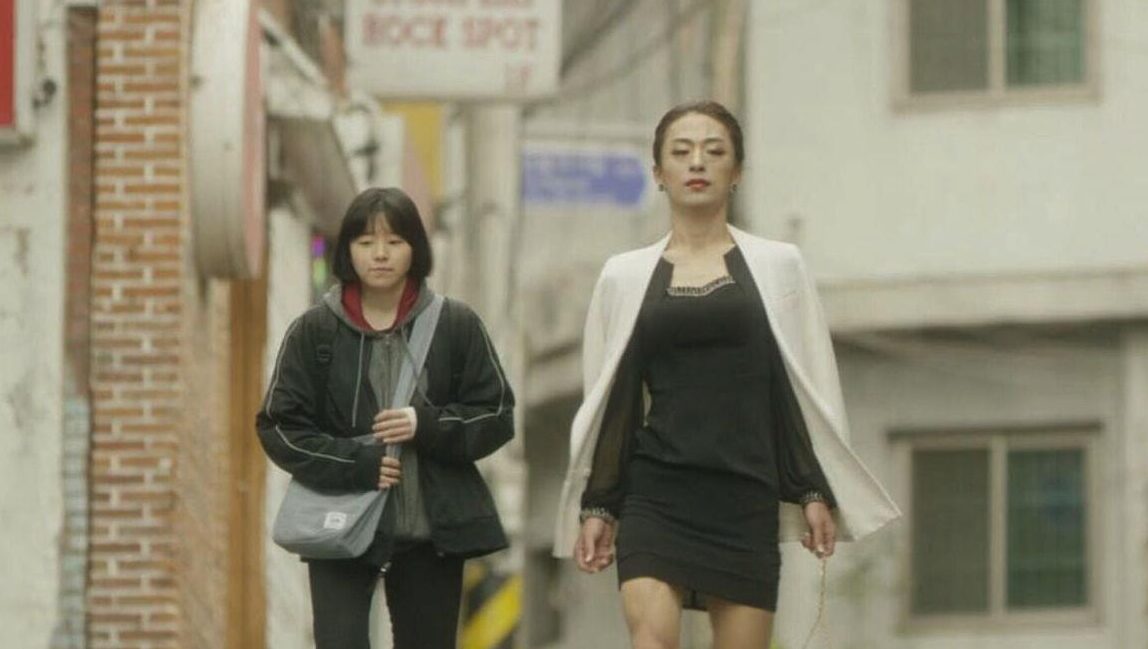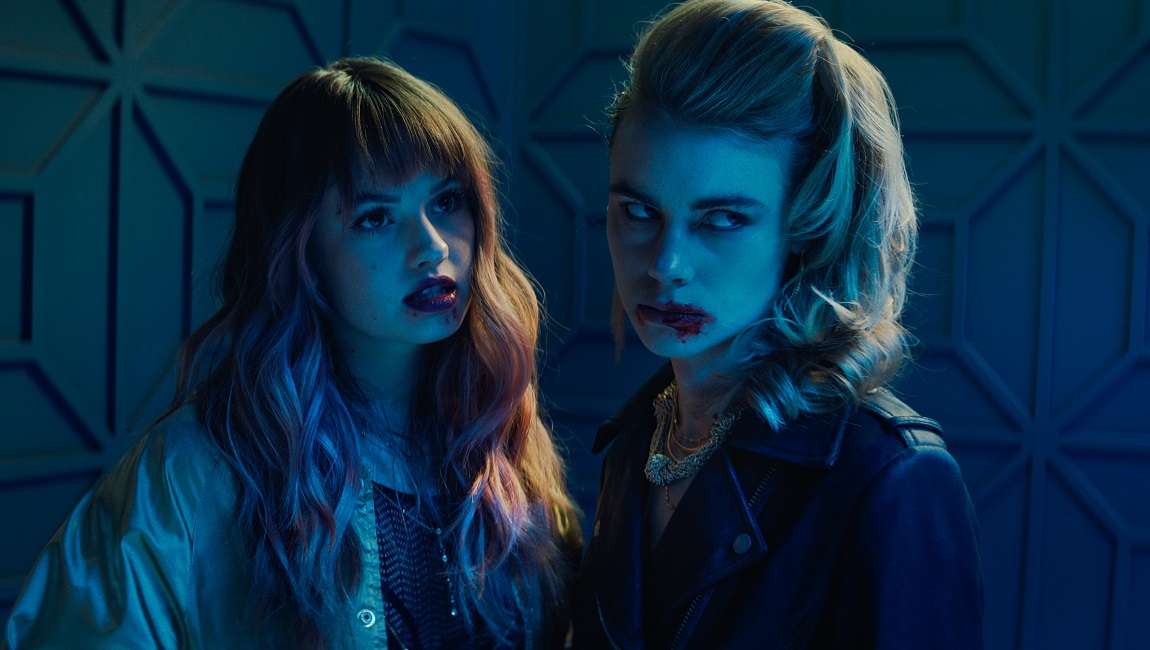Jacquot’s latest sticks to the directors strengths, mining poignancy from the inexplicable and beauteous.
As erratic and eccentric as any new film by Benoît Jacquot may initially appear to one’s eyes and expectations, and as impossible as it may be to categorize the French cineaste’s oeuvre easily under a singular aesthetic flag — his style can occasionally differ between his (earlier) Nouvelle Vague-inspired work and his (later) elegant period dramas — one should never be in doubt that, regardless of their individual quirks and qualities, they are all connected in one way or another within the singular taste and vision of one special auteur. Jacquot — a Parisian dandy, a high-brow intellectual, and a cultured cinephile who began his career as an assistant director to Marguerite Duras, and later also expanded his experience as a metteur-en-scène in the field of opera — has famously communicated his inexhaustible passion for two essential factors in his life and work: literature and women. One look at his filmography, and it’s easy to see how his films have always been animated by these two parallel and inspirational forces throughout nearly six decades.
His Casanova, Last Love (originally titled Dernier Amour, premiering across Europe in 2019) reflects such fascinations to their fullest extent. Adapted from a very specific chapter of the memoirs of the (in)famous 18th-century Venetian adventurer, writer, and playboy, Giacomo Casanova (played by respected actor and Jacquot’s frequent collaborator, Vincent Lindon), the director extracts an episode from the life of Giacomo wherein he finds himself madly in love and in desperate pursuit of a young courtesan, Marianne de Charpillon (Stacy Martin), while living out his exile in London. The situation between these two characters not only proves Jacquot’s facility with a sort of subversive approach — defamiliarizing the usual portrait of Casanova as an accomplished seducer and joyous libertine, instead here, portraying him more as a haunted, gloomy, and melancholic soul who mostly takes on the role of a distant, failed voyeur to his object of desire — but also expresses the manner in which this whole setup responds to many other works of the filmmaker: specifically, where a character rapidly finds him- or herself under an amorous spell, drawn forward by an indescribable attraction to a total stranger, or sometimes even an obsessive and possessive one-sided relationship.
Indeed, if anything can initially describe Jacquot’s films, it’s a deep fascination rooted in filming what might be considered the inexplicable. The deliberate impenetrability of actions, reactions, and interactions — which often skew toward non-conformism — might even approach a point where many viewers find themselves caught within a seemingly aimless narrative or thrown (intentionally, just like the characters) into a context where not everything seems meaningful or even believable. It’s no coincidence, then, that here Jacquot utilizes architectural spaces — corridors, rooms, and surrounding gardens — as a labyrinth form that reflects Casanova’s sense of being lost. Such spaces are of utmost significance when it comes to (re)considering Jacquot’s compositions, manifesting as painterly and sometimes geometrical mise-en- scène. The director has exhibited a very unique appreciation for an architectural quality throughout the years: whether using stylish modern-day houses, villas, or apartments as settings, or elsewhere in utilizing aristocratic palaces and mansions, these spaces not only offer a visual and atmospheric glamour and easy beauty, but more importantly, function as isolating, trap-like milieus. Secluded from the outer realities, these spatial locales often work to lull characters into somnolent and imaginary states, too. It often follows that Jacquot’s characters are found stepping into new living places, different social classes, or, as in Casanova, Last Love, another country. That’s to say, the people that populate these films are often presented as men and women with no vivid past or obvious background, and who ultimately manifest as specters or, more literally, “no-ones” — Farewell, My Queen and Eva offer two explicit examples of such. The director’s consistent play with various shades of light and shadow reinforces these hallucinatory/subjective states and mysterious characters in Casanova, Last Love, where one can also find similarities between Jacquot’s work and Hitchcock’s — and perhaps more than any other, Vertigo.
But Jacquot’s cinephilic knowledge in Casanova, Last Love is not limited to any Hitchcockian effect or his deftness with candle-lighting, so reminiscent of Kubrick’s Barry Lyndon, for instance. But even before that, right at the film’s beginning where Giacomo is seen retelling his story of amour fou to one of his mistresses, Cécile (Julia Roy), in flashbacks, it’s easy to discern resemblances between his narrative strategies and the similar thematic work found in Buñuel’s That Obscure Object of Desire. And in showcasing a relationship where age and class differences so readily arise, Jacquot’s strength as an actor’s director is uniquely foregrounded. Lindon’s curious — even devouring — voyeuristic glances register, but greater credit should be given to Stacy Martin’s daring performance, her natural allures helping her to embody a complicated, peculiar femme fatale who effortlessly slides between slyness and shyness, a promiscuous Lolita-esque type and a benign being, diabolical and seraphic, somehow reshaping and remolding Giacomo’s ephemeral lust and woo into eternal love and woe.
Understandably, as with many of Jacquot’s later films, Casanova, Last Love is ripe for criticism from habitual naysayers for its flat, straightforward mise-en-scène and the director’s austere, even archaic style, both academic and literary: characters can appear stiff or robotic — the accusation isn’t unlike the same cold or negative reactions that occasioned Jacques Doillon’s Rodin or other French historical pieces that are too carelessly labeled as “generic” or “old-fashioned.” Fair enough, if we don’t move beyond the outermost layer of Jacquot’s aesthetic, but for viewers willing to pay closer attention to the understated complexity at play, it can be absolutely captivating to see how Jacquot forms his films with such a serene and ethereal mood. The director’s work, his latest included, reflects several odd contradictions: both grandiosely baroque and modestly modern; spiritually transcendental and carnally erotic; monolithically structured but replete with subtle and soft nuances. Gradually, according to Jacquot’s slow-paced rhythms, spaces dissolve into non-spaces, time into timelessness, and living characters, ultimately, become the wandering ghosts of history and fiction. Or, as Casanova confesses to Cécile in the film’s final scene, while submerged in the rays of (a new) dawn, it all reflects something grander: when the despairs of the past vanish into the hopes of the future.







